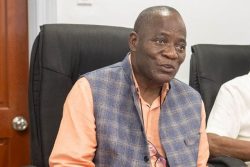Dear Editor,
As I travel across the country and more so the Essequibo Coast, I can see the difficulties faced by disabled people. Although the Disability Act was passed on the 10th June 2010, and assented to on the 2nd November 2010 by the previous administration, it was never implemented.
The new coalition government on their elections campaign promised to give the disabled equal rights if they won the elections. Five years after the passing of the legislation the disabled still have minimal rights in several areas of employment and education, and this can be deemed discrimination.
Disability has not been seen as a priority for the past 5 years, hence no resources have been channelled to the various ministries and agencies to support the implementation of the law.
The Disability Act was developed in response to the United Nation Con-vention on the rights of persons with disabilities.
There are countries which for some time now have been able to get along quite nicely with the United Nation Convention because they recognized the law and gave equal rights to their citizens, and the new Government of Guyana must do the same.
Persons with disabilities continue to be forced into the dark recesses of our society.
Many times people with disabilities are forced to be in the waiting line for hours outside the Supenaam Stelling to join the ferry. Previously you could call the stelling and book your car, and you were told to be there one hour before departure, but the rules have been changed for some unknown reason.
During the Desmond Hoyte era the disabled were issued with a free pass on all government transportation. Many of the grosser defects in the system could be corrected by this new coalition government to give every disabled person an equal starting chance.
The act has imbalances and imposed constraints, and we need a new framework with a view to guaranteeing disabled people some minimum level of decent living, and an equal chance to develop their inborn potential to the fullest.
The act must balance the rights it specifies by speaking of social and economic rights, such as the right to education, to work, to housing and to medical care, and it should require that a ramp is built at all government and private places of business and police stations.
Yours faithfully,
Mohamed Khan








